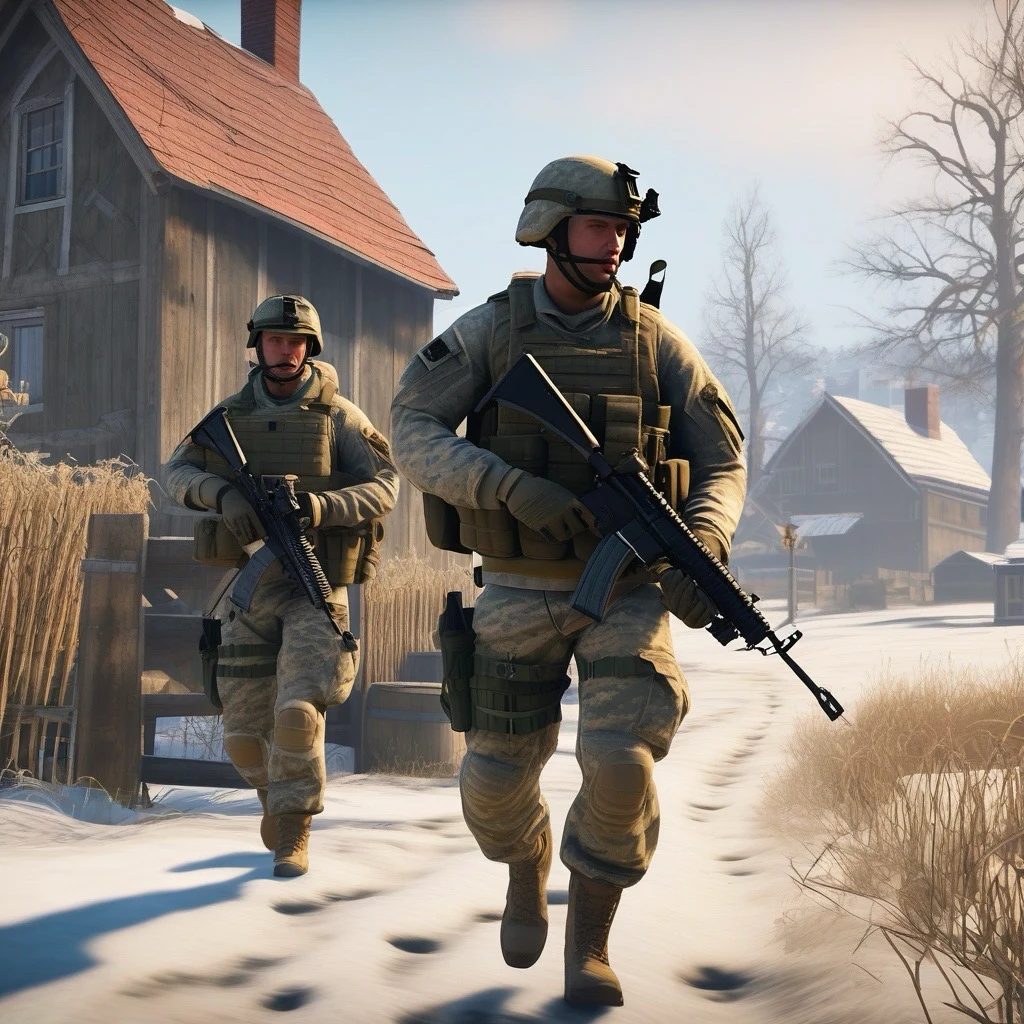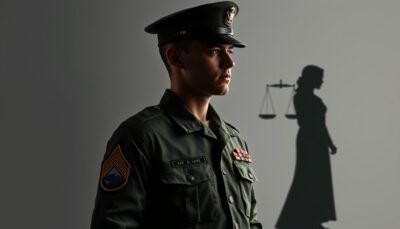The Art of Cross-Examination: Identifying Lawyers Skilled in Challenging Testimony in Sexual Assault Cases
In the high-stakes arena of a sexual assault trial, where accusations can dismantle lives and reputations, the truth is often fiercely contested. While various elements contribute to a robust defense—from meticulous investigation to compelling opening statements—perhaps no single skill is more critical, or more challenging, than the art of cross-examination.
It is during cross-examination that the defense attorney has the pivotal opportunity to challenge the prosecution’s narrative, expose inconsistencies, clarify ambiguities, and present alternative perspectives to the jury. However, the unique sensitivities surrounding sexual assault allegations demand a nuanced, highly skilled approach to cross-examination that goes far beyond standard legal tactics.
For someone facing sexual assault charges, identifying a lawyer with genuine mastery of cross-examination is paramount. It’s not just about being aggressive; it’s about being strategic, empathetic, and devastatingly effective. This article delves into the profound importance of effective cross-examination in sexual assault cases, explores the specific techniques required, and, crucially, outlines how to assess a lawyer’s abilities in this complex and often decisive area.
Why Cross-Examination in Sexual Assault Cases is a Different Beast
 Cross-examination is famously described by legal scholars as the “greatest legal engine ever invented for the discovery of truth.” However, in sexual assault cases, this engine operates on a uniquely sensitive terrain. Unlike a financial fraud case or a traffic violation, sexual assault allegations involve deeply personal and often traumatic events. This context presents significant challenges:
Cross-examination is famously described by legal scholars as the “greatest legal engine ever invented for the discovery of truth.” However, in sexual assault cases, this engine operates on a uniquely sensitive terrain. Unlike a financial fraud case or a traffic violation, sexual assault allegations involve deeply personal and often traumatic events. This context presents significant challenges:
- Societal Sensitivity: There is a heightened public and judicial sensitivity surrounding sexual assault. Juries are acutely aware of the prevalence of sexual violence and are often predisposed to believe accusers. An aggressive, insensitive, or seemingly victim-blaming cross-examination can backfire spectacularly, alienating the jury and harming the defense’s credibility.
- Memory and Trauma: Accusers, if they are genuine victims, may experience memory distortions, gaps, or sequential inaccuracies due to trauma. A skilled cross-examiner understands these complexities, knowing how to explore inconsistencies without appearing to accuse the individual of lying simply because their memory isn’t perfectly linear. They must differentiate between a genuine memory lapse due to trauma and deliberate fabrication.
- The “He Said, She Said” Dynamic: Many sexual assault cases lack independent witnesses and hinge primarily on the testimony of the accuser and the accused. In such scenarios, cross-examination becomes the primary tool for the defense to challenge the accuser’s narrative and introduce reasonable doubt.
- Forensic Evidence Limitations: While forensic evidence (DNA, medical reports) can be crucial, it rarely tells the whole story. It often confirms that an event occurred, but not whether it was consensual. Cross-examination is vital for exploring the limitations of forensic science and placing it in context.
- The Stigma of the Accused: Individuals accused of sexual assault often face immense societal condemnation from the outset. Effective cross-examination is one of the few opportunities to shift the narrative, humanize the accused, and present facts that undermine the prosecution’s case.
Cross-examination is not an art of attack; it’s an art of inquiry, particularly when dealing with sensitive matters like sexual assault. It requires not just legal acumen but profound human understanding.” – [Insert Quote from a respected defense attorney or legal ethicist]
The stakes are incredibly high. A misstep in cross-examination can reinforce a jury’s negative perceptions, solidify damaging testimony, or even lead to a conviction. Conversely, a masterfully executed cross-examination can expose fabricated allegations, reveal critical inconsistencies, or simply create enough doubt to secure an acquittal.
The Core Principles of Effective Cross-Examination: Beyond the Textbook
While general principles of cross-examination apply, their application in sexual assault cases requires a delicate touch and strategic foresight:
1. Control is Absolute:
The cardinal rule of cross-examination is control. The examiner asks leading questions that suggest the answer, allowing the witness only to agree or disagree. This prevents the witness from repeating their direct testimony or offering new damaging information. In sexual assault cases, maintaining control prevents emotional outbursts from the witness that could sway the jury against the defense.
2. Brevity and Clarity:
Short, precise questions are key. Each question should aim to elicit a single, undeniable fact. Long, convoluted questions confuse the jury and give the witness room to maneuver or elaborate. This is crucial when dealing with sensitive topics, as it keeps the focus on objective facts rather than subjective interpretations.
3. Listening, Truly Listening:
A great cross-examiner listens intently to the witness’s answers, not just planning their next question. Unexpected answers can open new avenues for inquiry or reveal deeper inconsistencies. This adaptive listening is vital in sexual assault cases where witness narratives can be complex or emotionally charged.
4. Never Ask a Question to Which You Don’t Know the Answer:
This classic rule is particularly potent. Every question on cross-examination should be designed to elicit a specific piece of information that supports the defense’s theory, often based on prior statements, documents, or physical evidence. This meticulous preparation minimizes surprises.
5. Know Your Objective:
Before stepping into court, the lawyer must define the specific goal of each segment of cross-examination. Is it to establish a timeline, highlight inconsistencies, prove a bias, or introduce a new fact? Without a clear objective, cross-examination can become unfocused and ineffective.
Specific Techniques for Cross-Examination in Sexual Assault Cases
Beyond the foundational principles, effective cross-examination in sexual assault cases demands specialized techniques:
1. Challenging Credibility (Through Facts, Not Character Assassination):
- Prior Inconsistent Statements: This is the most powerful tool. A skilled lawyer meticulously compares the accuser’s current testimony with previous statements (to police, friends, therapists, in texts, or social media). Any material deviation can be highlighted to challenge credibility. This must be done carefully, establishing the prior statement and then showing the contradiction.
- Bias or Motive: Exploring any potential bias, prejudice, or motive the accuser might have to fabricate or exaggerate allegations. This could include revenge, financial gain, custody disputes, or pressure from others. This is a delicate area and must be handled with substantial evidentiary backing to avoid appearing accusatory without cause.
- Fabrication of Other Events: If there’s evidence the accuser has fabricated other events or accusations in the past, a skilled lawyer might seek to introduce this (under strict legal rules, often requiring court permission).
- Lack of Corroboration: Highlighting the absence of physical evidence, immediate outcry, or other corroborating factors, not to blame the accuser, but to emphasize the reliance on a single, unverified narrative.
2. Addressing Memory Issues (Distinguishing from Lying):
 A truly empathetic yet effective cross-examiner understands that trauma can impact memory. They don’t accuse the accuser of lying simply because their memory is imperfect. Instead, they might:
A truly empathetic yet effective cross-examiner understands that trauma can impact memory. They don’t accuse the accuser of lying simply because their memory is imperfect. Instead, they might:
- Focus on Specific Details: Instead of broad questions, they zero in on concrete, verifiable details. “You testified you were wearing a blue shirt. Officer Smith’s report says you told him you were wearing a red shirt. Which is correct?” This highlights inaccuracies without directly challenging honesty.
- Exploring Gaps or Inconsistencies Over Time: Gently asking about why certain details emerged later or why accounts changed over multiple interviews. “You spoke with Detective Jones on Tuesday, then Detective Miller on Thursday. In the first statement, you didn’t mention [detail X], but you did in the second. Why the difference?”
- Acknowledging Trauma (While Still Questioning): A nuanced approach might acknowledge the difficulty of remembering traumatic events, while still asking questions designed to clarify inconsistencies. “I understand this is a very difficult memory to recount, but I need to ask you about…”
3. Dealing with Forensic and Medical Evidence:
- Limitations of Science: Cross-examining forensic experts is crucial. A skilled lawyer will explore the limitations of the science itself (e.g., DNA proves presence, not consent), the possibility of contamination, or the specific protocols used by the lab.
- Alternative Explanations: Presenting alternative, innocent explanations for the presence of forensic evidence (e.g., consensual contact, secondary transfer).
- Medical Reports: Cross-examining medical personnel (e.g., SANE nurses) about the objective findings versus subjective interpretations, the lack of certain injuries, or the possibility of injuries stemming from other causes.
4. Navigating the “He Said, She Said” Dynamic:
When testimony is the primary evidence, cross-examination aims to tip the balance of credibility. This involves:
- Drawing Out Details of Accuser’s Account: Pinpointing specific alleged actions or words and then systematically demonstrating how they are inconsistent with other evidence or common sense.
- Building the Defense’s Narrative: Using the accuser’s testimony to subtly confirm elements of the defense’s story (e.g., “And you saw my client leave the party at 11:30 PM, correct?”).
- Highlighting Absence of Details: If the accuser’s account is vague on critical details, a skilled lawyer can highlight this (e.g., “You testified you were afraid, but you continued to communicate with my client for weeks afterward, correct?”).
5. Handling Emotional Testimony:
Accusers may display strong emotions. A good cross-examiner never attacks the emotion itself but focuses on the facts. They maintain a calm, professional demeanor, letting the jury contrast it with potential emotional volatility, or they might pivot to less emotional, factual areas to regain control.
What to Look For in a Lawyer’s Cross-Examination Skills: The Assessment Guide
When your freedom and future are on the line, you cannot afford to have a lawyer who merely “tries” cross-examination. You need a proven master. Here’s how to assess a lawyer’s abilities in this crucial area:
1. Specialized Training and Mentorship:
- Formal Trial Advocacy Training: Has the lawyer undergone specific, advanced training in trial advocacy, particularly in cross-examination? Many law schools offer competitive trial teams, and organizations like the National Institute for Trial Advocacy (NITA) provide intensive, hands-on training.
- Mentorship from Masters: Have they worked under or been mentored by senior attorneys renowned for their cross-examination skills? Learning from seasoned practitioners is invaluable.
2. Extensive and Relevant Trial Experience:
- Number of Trials: Ask about the number of sexual assault cases they have taken to trial. Quantity often translates to comfort and adaptability in the courtroom.
- Specific Outcome-Based Experience: Beyond just trials, inquire about specific cases where cross-examination was pivotal in achieving a favorable outcome (acquittal, dismissal, reduced charges). Ask for anonymized examples of how they handled a challenging witness or exposed an inconsistency.
- Experience in Diverse Jurisdictions: Experience in both civilian and military courts (if applicable) demonstrates adaptability to different rules of evidence and jury compositions.
“You can’t learn cross-examination from a book alone. It’s a performance art, refined through countless hours in the courtroom, learning from victories and setbacks.” – [Insert Quote from a trial skills expert or experienced judge]
3. Temperament and Demeanor:
- Calm Under Pressure: A great cross-examiner remains calm, composed, and unruffled, even when a witness is difficult or hostile. This projects confidence and control to the jury.
- Professionalism and Respect: They must be able to challenge testimony rigorously without resorting to rudeness, badgering, or disrespectful behavior. Juries quickly turn against a lawyer who appears to be bullying.
- Strategic Patience: Knowing when to press a point and when to move on is crucial. They don’t beat a dead horse but also don’t give up too soon on a promising line of questioning.
4. Strategic and Analytical Thinking:
- Understanding the “Why”: During a consultation, ask the lawyer how they would approach cross-examining the accuser in your specific case. A skilled lawyer will explain their strategic “why” behind their questions, not just recite a list of questions. They’ll outline what facts they aim to elicit or contradict.
- Anticipating Responses: They should be able to anticipate likely answers and have follow-up questions prepared for each possibility.
- Theory of the Case Integration: Every line of questioning should ultimately serve the overarching defense theory of the case (e.g., consent, false accusation, mistaken identity, alibi).
5. Meticulous Preparation and Research:
- Deep Dive into Discovery: A lawyer proficient in cross-examination will have read and re-read every piece of discovery (police reports, witness statements, interviews, forensic reports, texts, emails, social media posts) multiple times, noting every detail, inconsistency, and omission. This forms the basis of their questions.
- Witness Background Research: They will thoroughly research the accuser and other key witnesses, looking for anything that might shed light on their credibility, biases, or potential motives.
- Knowledge of Forensic Limitations: They will understand the scientific underpinnings and limitations of any forensic evidence to effectively cross-examine experts.
6. Use of Technology and Demonstrative Aids:
In modern courtrooms, skilled lawyers often use technology to enhance cross-examination. This could include:
- Displaying prior inconsistent statements on a screen for the jury to see as the witness answers.
- Presenting photographs, text messages, or video clips that contradict testimony.
- Using timelines or diagrams to highlight discrepancies in the accuser’s narrative.
7. Clear Client Communication on Strategy:
A good lawyer will discuss their cross-examination strategy with you, explaining the risks and potential rewards. They will prepare you for what to expect and why certain questions are being asked, ensuring you are fully informed and comfortable with the approach.
Red Flags to Watch Out For
Just as there are signs of excellence, there are also significant red flags that should raise concerns about a lawyer’s cross-examination abilities, especially in sensitive sexual assault cases:
- Overly Aggressive or Insensitive Rhetoric: A lawyer who speaks about “destroying” or “shredding” the accuser, or who suggests a “blame the victim” approach, is not only ethically questionable but also strategically misguided in today’s legal climate. This often alienates juries and judges.
- Lack of Specific Strategy: If a lawyer can’t articulate a clear, fact-based strategy for cross-examining the accuser in your unique case, it indicates a lack of preparedness or true skill.
- Generic Answers: A lawyer who gives vague, general answers about their experience or techniques, rather than specific examples, might be attempting to mask a lack of true specialization.
- Reliance on “Fishing Expeditions”: A cross-examiner who asks broad, open-ended questions without a clear purpose is likely on a “fishing expedition,” which rarely yields positive results and often gives the witness an opportunity to reiterate damaging information.
- Poor Listening Skills: If the lawyer seems distracted, constantly interrupts, or doesn’t react to the witness’s actual answers, it’s a sign they won’t be effective.
The Impact of Excellent Cross-Examination: A Game-Changer
The impact of a truly exceptional cross-examination in a sexual assault case cannot be overstated. It can:
- Create Reasonable Doubt: By highlighting inconsistencies or revealing biases, it can sow the seeds of doubt in the minds of the jury, leading to a not-guilty verdict.
- Expose Fabrication: In cases of false allegations, masterful cross-examination is often the most powerful tool to expose the truth.
- Mitigate Damage: Even if the accuser’s testimony isn’t entirely discredited, effective cross-examination can soften its impact, clarify context, or introduce details that support a defense of consent or honest mistake.
- Pressure for Favorable Plea Bargains: Prosecutors, seeing the strength of the defense’s cross-examination, may become more willing to negotiate a more favorable plea agreement or even dismiss charges.
- Reframe the Narrative: It allows the defense to control certain aspects of the narrative during the prosecution’s case, setting the stage for their own defense presentation.
In the crucible of a sexual assault trial, the cross-examination of the accuser is often the most defining moment. It demands precision, empathy, and unparalleled skill.” – [Insert Quote from a judge or academic on the criticality of cross-examination in these cases]
Your Defense Demands the Best
Cross-examination is far more than just asking questions; it is a meticulously planned, strategically executed art form that can single-handedly alter the course of a sexual assault trial. For anyone accused of such a serious crime, identifying and securing a lawyer who possesses genuine mastery of this critical skill is not merely advantageous—it is absolutely essential for safeguarding your freedom and your future.
When selecting legal counsel, delve deep into their experience, their strategic approach, their temperament, and their track record in challenging testimony in sexual assault cases. Choose a lawyer who understands the unique sensitivities involved, who prepares relentlessly, and who can wield the weapon of cross-examination with both precision and power.
At Gonzalez & Waddington, our attorneys are renowned for their exceptional cross-examination skills in both civilian and military sexual assault cases. We understand the stakes, we master the details, and we relentlessly advocate for our clients’ rights and the truth.
Contact Gonzalez & Waddington for a Confidential Consultation and a Defense Built on Mastery.



